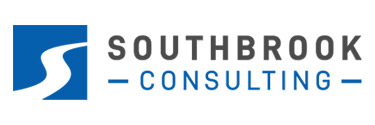
Over the last few months, I have been repeatedly asked, “Should I implement Open Book Management?” or “What do you think of the Great Game of Business?”.
These are loaded questions. My instinct is to respond, “Why do you ask?”
For me personally, I introduced the concept of Open Book Management to my company (Gelderman Landscape Services) approximately 12 years ago because I was frustrated. I was frustrated that my staff were not thinking like owners, their actions/decisions were not aligned with mine, my staff had no idea whether we were making money, losing money, or breaking even. They were basically treated like mushrooms (kept in the dark and fed manure).
Fast forward to 2021, Open Book Management has been a game changer. However, it did require many changes for our staff and processes and specifically it changed “me”. I had to come to grips with a few personal issues. Was I ready to “open the books”, share good or bad news, and hold people accountable to the numbers?

If you are still interested in learning more and want to be challenged, keep reading…Otherwise, delete this post.
First, what is OPEN BOOK MANAGEMENT:
- It is a system or process that teaches managers and employees how to keep track and win the game of business.
- It helps companies who are interested in making more money and getting their people to think and act like business owners instead of workers
- It is not a one-time event or seminar (like teaching your child how to ride a bike), but a life long commitment!
- It allows all employees to know what they need to do to “win the game”
- It allows all employees to know what “game” the company is playing.

Okay, so yes I want to know more…
First question: Why do you want to implement OBM?
Not fully understanding the following strategies will result in Failure and further Frustrations.
TOP 5 strategies in implementing OBM:
- Champion of the system
- Who will drive the program forward with energy and enthusiasm?
- Are you (owner) ready to transfer responsibility for achieving the numbers to
your team players? - Decide on what you want to improve? i.e. Higher Net profit, Reduce costs, Improved Field Productivity, Higher Workmanship, Better customer service, Increased employee engagement & retention, etc.
- Willingness to Share the Numbers
- Financial reporting must be accurate (no cash jobs) and month-end must be timely
- Owners must be willing to honestly communicate good and bad news
- Company will be required to develop goals and targets
- An Educated Work Force
- Teaching the staff will be critical, teach the concepts and understand how they contribute to the monthly income statement. (This will take time)
- Create scorecards together – ask for feedback from your staff
- Communication System – How will you communicate to the staff?
- Track your critical numbers (keep it simple and a few)
- Share the numbers visually – post for everyone to share – Scoreboard
- Hold monthly meetings with all employees and share the good/bad news (are you “On Track or Off Track”?)
- Celebrate the successes and wins based on real numbers
- Continual Commitment – Keep employees informed along the way
- Sharing the Dividends/Profits
- What will you payout amount be? Will a Minimum Threshold be set or % of the Net Profits?
- When to payout? (monthly, quarterly, yearly)
- How will you distribute the profits between each staff member? Evenly split or based on something else?
As you can see, implementing Open Book Management will require commitment. Take your time and ensure your “Why” to implement is strong, concrete, and bulletproof. Once you start, it is very hard to turn back!
Until next time, Nathan







